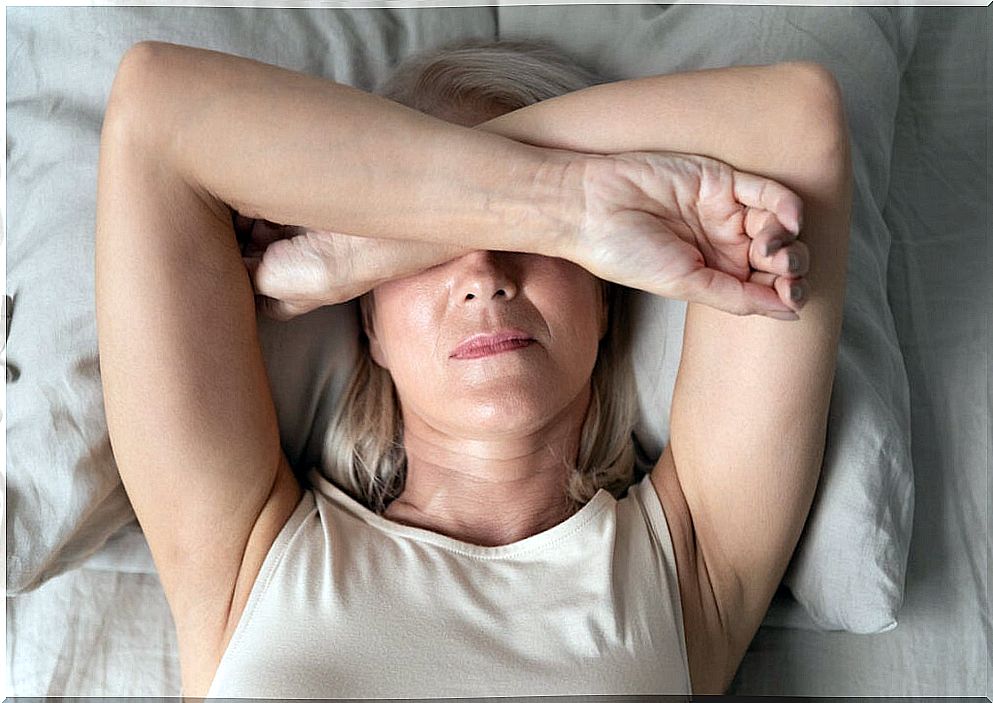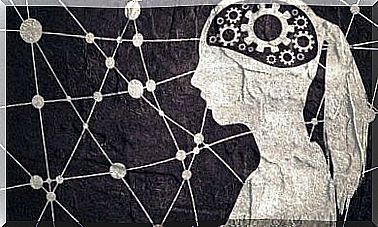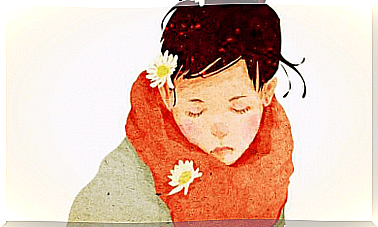Chronic Pain Insomnia: What Causes It And What To Do About It?

Pain is one of the most unpleasant, uncomfortable and distressing sensations we can experience. It generates restlessness, is an obstacle to the performance of our daily tasks and affects our social life. But, above all, it interferes with rest. When this discomfort is prolonged, the person’s sleep is affected, with several changes. That’s why, today, we want to talk about insomnia triggered by chronic pain.
If at any point in your life you have suffered significant pain, you have probably feared the night. The sensations are exacerbated by the lack of external stimuli and the inability to fall asleep can generate a lot of frustration. For those who have chronic pain, this is a constant in their daily lives. While there may be methods to alleviate it, it is important to ensure that the quality of sleep is good.

What is chronic pain?
Pain can manifest itself in two different ways. Acute pain is pain that arises in connection with a recent injury or problem, has a limited duration and disappears as the body heals. On the other hand, chronic pain is pain that remains for more than three months, or one month after the original disorder resolves.
Depending on its origin, it can consist of dull, throbbing pain, pressure or stiffness, among others. Furthermore, there are a variety of pathologies that can lead to its appearance. Among the most common are the following:
- Arthritis, osteoarthritis and rheumatism.
- Migraine and headaches.
- Cancer.
- Nerve damage.
- Fibromyalgia.
- Trauma and infections.
In general, it is estimated that between 20% and 35% of the world population suffer from chronic pain. The personal and financial costs arising from this reality deserve investment in research.
Chronic Pain Insomnia: How Does Pain Affect Sleep?
Insomnia resulting from chronic pain is just one of the consequences and its impact can have several fronts. It has been found that 50-89% of people with chronic pain have sleep disorders and have poor quality of life.
Furthermore, it is important to note that the relationship between rest and pain is bidirectional: pain prevents the person from getting adequate rest, but, in addition, sleep deprivation aggravates the perception of painful sensations. Thus, a vicious circle that is difficult to neutralize begins.
When sleep is not complete, deep and restorative, medications used to alleviate pain lose their effectiveness. Furthermore, it has been found that suppression of the REM phase causes the anti-algic action of morphine and other opioids to be reduced.
Paradoxically, these same drugs can alter the structure of sleep and contribute to the suppression of the REM phase, causing an increase in pain sensitivity. Ultimately, all of these interactions put people with chronic pain in a difficult situation to resolve.
What can we do about it?
Unfortunately, in many cases, it is not possible to prevent the onset of chronic pain. While some conditions, such as migraine, have several approved preventative medications, they are not always as effective as you might expect.
On the other hand, in other diseases, medications are only prescribed to treat pain when it has already appeared. So what can we do so that these sensations don’t interfere so strongly with rest? There are several possible measures.
On the one hand, it has been found that using drugs with delayed-release formulations may be more effective than using quick-release drugs. With this measure, we avoid the onset of sleep disorders associated with analgesics.

sleep hygiene
On the other hand, it is essential that the person maintain adequate sleep hygiene, even if this is difficult to implement. These simple steps can help you fall asleep and stay asleep, as well as improve sleep quality:
- Avoid drinking coffee, tea, sugar and other stimulants in the late afternoon. Also, try not to drink alcohol as this can cause an early awakening.
- Take a hot shower before bed. This can help relieve pain and induce a relaxed state that encourages sleep.
- Make sure the environmental conditions are suitable. Darkness, silence and a temperature around 21 degrees are elements to be taken into account.
- Avoid activities other than resting in bed. Do not use it for eating or watching television.
- Adopt stable sleep routines and stick to them every day, even on weekends. Also, try to go to bed around 11 pm, as this is the most favorable time for the body.
Ultimately, chronic pain and insomnia are difficult to prevent and control, but there are some alternatives. Therefore, if you suffer from this type of problem, don’t hesitate to mention it to your doctor to look for possible solutions available. Quality sleep is essential for physical and psychological well-being; take care of it as much as possible.









